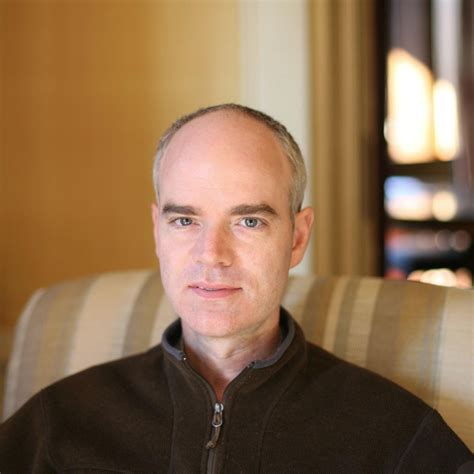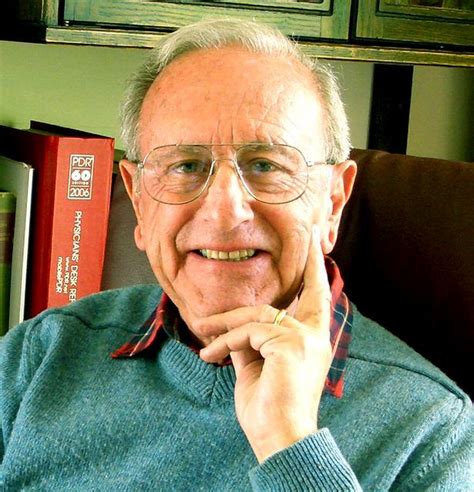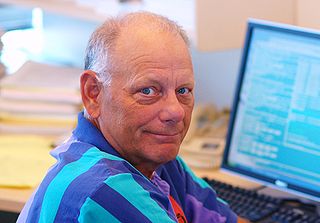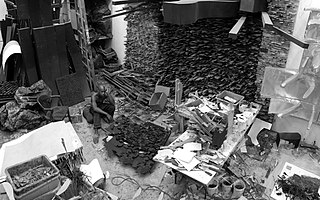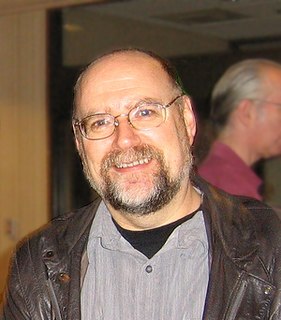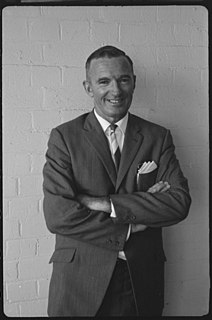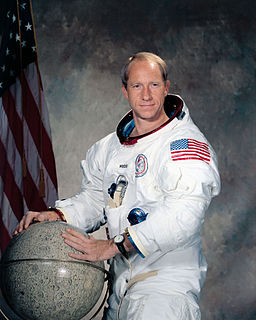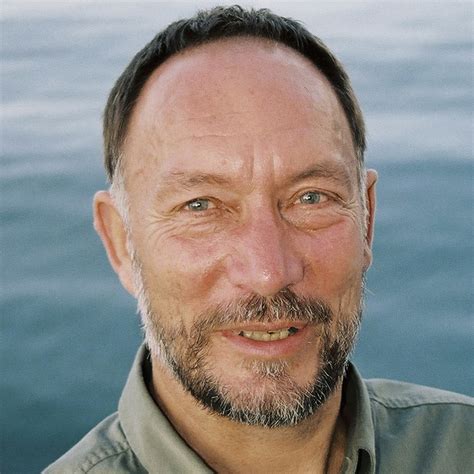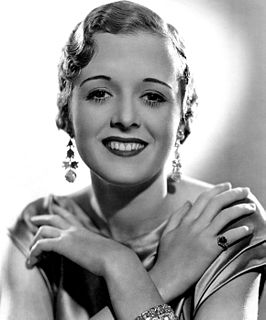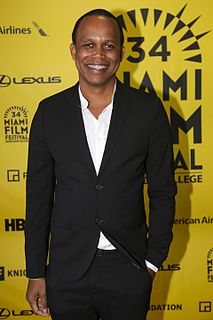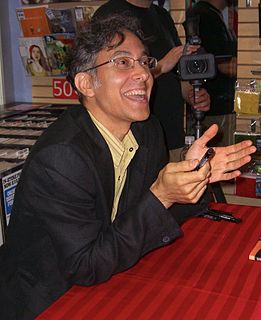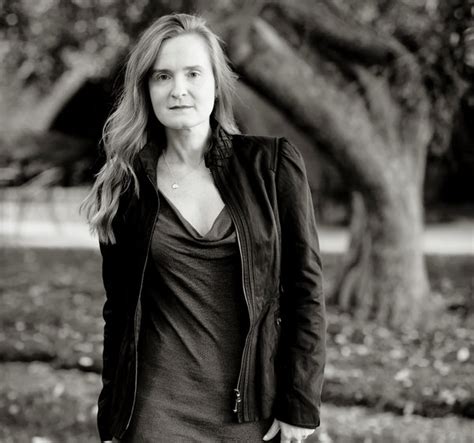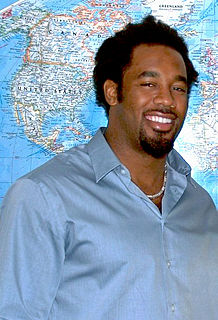Top 1200 Memory Quotes & Sayings - Page 6
Explore popular Memory quotes.
Last updated on April 20, 2025.
The force behind the movement of time is a mourning that will not be comforted. That is why the first event is known to have been an expulsion, and the last is hoped to be a reconciliation and return. So memory pulls us forward, so prophecy is only brilliant memory - there will be a garden where all of us as one child will sleep in our mother Eve, hooped in her ribs and staved by her spine.
All the charm of the angler's life would be lost but for these hours of thought and memory. All along the brook, all day on lake or river, while he takes his sport, he thinks. All the long evenings in camp, or cottage, or inn, he tells stories of his own life, hears stories of his friend's lives, and if alone calls up the magic of memory.
And so was Luria, whose words now came back to me: ‘A man does not consist of memory alone. He has feeling, will, sensibility, moral being ... It is here ... you may touch him, and see a profound change.’ Memory, mental activity, mind alone, could not hold him; but moral attention and action could hold him completely.
It's a fusion of almost everything, in the way that I think society today tends to take cultural memory. Because there's an internet, it's on there forever. I think that's the way kids see the world today. They actually speak to each other using retro concepts now because the internet culture has kept that memory alive, constantly.
Friedrich Hayek .. seems to have been the first to postulate what is the core of this paper, namely, the idea of memory and perception represented in widely distributed networks of interconnected cortical cells. Subsequently this idea has received theoretical support, however tangential, from the fields of cognitive psychology, connectionism and artificial intelligence. Empirically, it is well supported by the physiological study and neuroimaging of working memory.
I think all writing is political. All writing shows a preoccupation with something, whatever that thing might be, and by putting pen to paper you are establishing a hierarchy of some sort - this emotion over that emotion, this memory over that memory, this thought over another. And isn't that process of establishing a hierarchy on the page a kind of political act?
What a glorious night. Every face I see is a memory. It may not be a perfectly perfect memory. Sometimes we had our ups and downs. But we're all together and you're mine for a night. And I'm going to break precedent and tell you my one-candle wish...that you would have a life as lucky as mine, where you can wake up one morning and say, 'I don't want anything more'. Sixty-five years. Don't they go by in a blink?
It seems to me, that this, too, is how memory works. What we remember of what was done to us shapes our view, molds us, sets our stance. But what we remember is past, it no longer exists, and yet we hold on to it, live by it, surrender so much control to it. What do we become when we put down the scripts written by history and memory, when each person before us can be seen free of the cultural or personal narrative we've inherited or devised? When we, ourselves, can taste that freedom.
And then in the FBI report it says that Hillary Clinton can't remember her exit interview from the FBI because of her concussion because she didn't have a memory. But she was acting as secretary of state at the time which means we had a secretary of state who was acting who doesn't have a memory of what she was doing.
Memory is a wonderfully useful tool, and without it judgement does its work with difficulty; it is entirely lacking in me.... Now,the more I distrust my memory, the more confused it becomes. It serves me better by chance encounter; I have to solicit it nonchalantly. For if I press it, it is stunned; and once it has begun to totter, the more I probe it, the more it gets mixed up and embarrassed. It serves me at its own time, not at mine.
My first operating system project was to build a real-time system called RSX-11M that ran on Digital's PDP-11 16-bit series of minicomputers. ... a multitasking operating system that would run in 32 KB of memory with a hierarchical file system, application swapping, real-time scheduling, and a set of development utilities. The operating system and utilities were to run on the entire line of PDP-11 platforms, from the very small systems up through the PDP-11/70 which had memory-mapping hardware and supported up to 4 MB of memory.
Memory is a tenuous thing. . . . flickering glimpses, blue and white, like ancient, decomposing 16mm film. Happiness escapes me there, where faces are vague and yesterday seems to come tied up in ribbons of pain. Happiness? I look for it intead in today, where memory is something I can still touch, still rely on. I find it in the smiles of new friends, the hope blossoming inside. My happiest memories have no place in the past; they are those I have yet to create.
I started making work, and it's like, yes you are calling out all of these things that are part of your memory, your body's memory, things that have gone through your pores, what you've seen, what you've experienced, and you spill them out without thinking. I don't think so much about, "Okay, I'm going to make work, and it's going to be about this." It's just going to come out.
As we get older it is our short term memory that fades rather than our long term memory. Perhaps we have evolved like this so that we are able to tell the younger generation about the stories and experiences that have formed us which may be important to subsequent generations if they are to thrive.I worry though, about what might happen to our minds if most of the stories we hear are about greed, war, and atrocity
The art and science of memory is about developing the capacity to quickly create images that link disparate ideas. Creativity is the ability to form similar connections between disparate images and to create something new and hurl it into the future so it becomes a poem, or a building, or a dance, or a novel. Creativity is, in a sense, future memory.
I sell ideas. Actually, if you think about it, everything is really no more than idea. The past is nothing more than a memory, which is one kind of idea. The future is still a hope, another kind of idea. The present is fleeting and becomes a memory before you can put your hands on it. All ideas. I sell ideas.
To fire a bullet into the heart or brains of one's fellow man even a fellow man striving to do the same to you creates what might be called an unassimilable memory: a memory that floats on daily life the way an oil stain floats on rainwater. Stir the rain barrel, scatter the oil into countless drops, disperse it all you like, but it will not mix; and eventually the slick comes back, as loathsomely intact as it ever was.
There is so little to remember of anyone - an anecdote, a conversation at a table. But every memory is turned over and over again, every word, however chance, written in the heart in the hope that memory will fulfill itself, and become flesh, and that the wanderers will find a way home, and the perished, whose lack we always feel, will step through the door finally and stroke our hair with dreaming habitual fondness not having meant to keep us waiting long.
Memory is a funny thing. It tricks you into believing that you've forgotten important moments, and then when you're raking your brain for a bit of information that might make sense of something else, it taps you on the head and says, "Remember when you told me to put that memory in the green rubbish bin? Well, I didn't, I put it in the black recycling tub, and it's coming your way again.
Dreams have consequences. There is no turning back. A revolution is not a painless march to the gates of freedom and justice. It is a struggle between rage and hope, between the temptation to destroy and the desire to build. Its temperament is desperate. It is a tormented response to the past, to all that has happened, the recalled and unrecalled injustices - for the memory of a revolution reaches much further back than the memory of its protagonists.
The truth is impossible to comprehend even when one is willing to tell it. For the truth resides in memory and memory is clouded with repression and a desire to embellish. The recollections of any individual are conditioned by the general truths to which he or she has tried to live. To recall an event is to interpret it, so the truth is altered by the very act of remembering. Therefore the truth, like God, does not exist - only the search for it.
You are told a lot about your education, but some beautiful, sacred memory, preserved since childhood, is perhaps the best education of all. If a man carries many such memories into life with him, he is saved for the rest of his days. And even if only one good memory is left in our hearts, it may also be the instrument of our salvation one day.
Quietly, like a night bird, floating, soaring, wingless. We glide from shore to shore, curving and falling but not quite touching; Earth: a distant memory seen in an instant of repose, crescent shaped, ethereal, beautiful, I wonder which part is home, but I know it doesn't matter... the bond is there in my mind and memory; Earth: a small, bubbly balloon hanging delicately in the nothingness of space.
How is the mind which functions on knowledge how is the brain which is recording all the time to end, to see the importance of recording and not let it move in any other direction? Very simply: you insult me, you hurt me, by word, gesture, by an actual act; that leaves a mark on the brain which is memory. That memory is knowledge, that knowledge is going to interfere in my meeting you next time obviously.
That's grossing money for other people that has a multiplying factor, but the government doesn't see that. It doesn't see that making a film or culture or art is part of our economy. But the main reason is this, it's part of our identity. I think cinema is the memory and the imagination of the country. Take the memory and imagination out of an individual and he's stops being an individual.
There is also a particular area of sleep called slow-wave sleep. I immediately liked this idea. It turns out this part of sleep is where the brain basically gets into step with itself and gets into this one single phase of these relatively slow brain waves - around 10 Hz or so - and the whole brain 'fires all at once'. This is a brilliant bit of sleep where we consolidate memory and learning, and memory is one of my obsessions really.
If there is any realm where distinction is especially difficult, it is the realm of childhood memories, the realm of beloved images harbored in memory since childhood. These memories which live by the image and in virtue of the image become, at certain times of our lives and particularly during the quiet age, the origin and matter of a complex reverie: the memory dreams, and reverie remembers.
Paradoxically one of the greatest advantages of mind maps is that they are seldom needed again. The very act of constructing a map is itself so effective in fixing ideas in memory that very often a whole map can recalled without going back to it at all. A mind map is so strongly visual and uses so many of the natural functions of memory that frequently it can be simply read off in the mind's eye.
What happens when she's not my memory anymore? What happens when she's not around to tell me about his belt leaving scars across my two-year-old brother's face or when he whacked her so hard that she lost her hearing for a week? Who'll be my memory?" Santangelo doesn't miss a beat. "I will. Ring me." "Same," Raffy says. I look at him. I can't even speak because if I do I know I'll cry but I smile and he knows what I'm thinking.
The first step in liquidating a people is to erase its memory. Destroy its books, its culture, its history. Then have somebody write new books, manufacture a new culture, invent a new history. Before long that nation will begin to forget what it is and what it was... The struggle of man against power is the struggle of memory against forgetting.
The average person's short-term memory can hold only five to seven bits of data at any one moment. If you put more items in, others fall out. The older you are, the more you have crammed into those memory circuits. Twenty-five-year-olds can remember things because they still have empty space. Some of us take our children to the supermarket in the hope they will remember why we are there.
I could stay depressed about my bad memory, but that's a negative way to live. Let's look on the bright side and list the advantages of having a bad memory.
(1) You can reread a book and see a movie over and over and enjoy it as much as the first time.
(2) If you make an inconvenient promise, you can pretend that you forgot about it and still be forgiven.
(3) This is the most important thing: you can keep coming up with ideas without being held back by convictions or the past.
Intelligence is an extremely subtle concept. It's a kind of understanding that flourishes if it's combined with a good memory, but exists anyway even in the absence of good memory. It's the ability to draw consequences from causes, to make correct inferences, to foresee what might be the result, to work out logical problems, to be reasonable, rational, to have the ability to understand the solution from perhaps insufficient information. You know when a person is intelligent, but you can be easily fooled if you are not yourself intelligent.
Because computers have memories, we imagine that they must be something like our human memories, but that is simply not true. Computer memories work in a manner alien to human memories. My memory lets me recognize the faces of my friends, whereas my own computer never even recognizes me. My computer's memory stores a million phone numbers with perfect accuracy, but I have to stop and think to recall my own.
Love's arms were wreathed about the neck of Hope,
And Hope kiss'd Love, and Love drew in her breath
In that close kiss and drank her whisper'd tales.
They said that Love would die when Hope was gone.
And Love mourn'd long, and sorrow'd after Hope;
At last she sought out Memory, and they trod
The same old paths where Love had walked with Hope,
And Memory fed the soul of Love with tears.
Some people say they use images to help them remember intricacies. Others say they just remember. If they are able to form an image of the face, it is because they remember how it was: it is not that an image guides memory, but that memory produces an image, or the sense of imaging. We have no agreed way to talk clearly about such things.
I thought back to a childhood memory: the first dead body I'd ever seen was the body of an immigrant washed up on shore. I went back to that memory. As a child, you can't process these types of images in a healthy way. I don't think anyone can, really. So I explored that. These people were buried in mass graves. I don't know if their families ever heard from them again.
To live (as I understand it) is to exist within a conception of time. But to remember is to vacate the very notion of time. Every memory, no matter how remote its subject, takes place 'Now,' at the moment it's called to the mind. The more something is recalled, the more the brain has a chance to refine the original experience. Because every memory is a re-creation, not a playback.
When you bounce your eyes away from a sexual image, immediately pull from your memory a pure image. Maybe a wedding picture, or a vacation experience with your family, or your buddies. There are thousands of positive images you can pull from your memory within seconds to replace the sexual images you're tempted with.
Our capacity to move forward as developing beings rests on a healthy relationship with the past. Psychotherapy, that widespread method for promoting mental health, relies heavily on memory and on the ability to retrieve and organize images and events from the personal pastIf we learn not only to tell our stories but to listen to what our stories tell us—to write the first draft and then return for the second draft—we are doing the work of memory.
When we have the same thought again, the line of the original thought is deepened, causing what's called a memory trace. With each repetition the trace goes deeper and deeper, forming and embedding a pattern of thought. When an emotion is tied to this thought pattern, the memory trace grows exponentially stronger.
I could still smell her on my fur. It clung to me, a memory of another world. I was drunk with it, with the scent of her. I'd got too close. The smell of summer on her skin, the half-recalled cadence of her voice, the sensation of her fingers on my fur. Every bit of me sang with the memory of her closeness. Too close. I couldn't stay away.
Memory is the seamstress, and a capricious one at that. Memory runs her needle in and out, up and down, hither and thither. We know not what comes next, or what follows after. Thus, the most ordinary movement in the world, such as sitting down at a table and pulling the inkstand towards one, may agitate a thousand odd, disconnected fragments, now bright, now dim, hanging and bobbing and dipping and flaunting, like the underlinen of a family of fourteen on a line in a gale of wind.
Don't make your wedding a pleasant memory in this life but a source of misery in the next. Make it an eternally good memory. In trying to have a halal wedding, you might sacrifice many relationships but the opposite might mean sacrificing the only relationship that will matter in the hereafter for a bunch of people who don't even really care about you. Don't make one night the cause of your regret for an eternity.
I think memory is the most important asset of human beings. It's a kind of fuel; it burns and it warms you. My memory is like a chest: There are so many drawers in that chest, and when I want to be a fifteen-year-old boy, I open up a certain drawer and I find the scenery I saw when I was a boy in Kobe. I can smell the air, and I can touch the ground, and I can see the green of the trees. That's why I want to write a book.
Memory is not like a container that gradually fills up, it is more like a tree growing hooks onto which memories are hung. Everything you remember is another set of hooks on which more new memories can be attached. So the capacity of memory keeps on growing. The more you know, the more you can know.
I keep thinking my father gave me Turgenev, and then I realize at some point, Oh, this is a false memory. I mean, that's one of the things that interests me about memoir. It should be as much about how we remember, and that includes false memories, and the realization that one is having a false memory. That's the kind of an interesting way of layering the whole experience of recollection.
I have had the advantage of the opportunity to meet with Mr. Trump on several occasions. And my experience is that he's very intelligent. He's thirsty for information. He wants to hear what you have to say. He listens to his advisers. He digests the information very quickly, and he's got a good memory, because I remember one time I was talking to him about something, and then he pulled some information out of his memory banks that was a great connection that I hadn't even thought to mention to him.
But soon we shall die and all memory of those five will have left the earth, and we ourselves shall be loved for a while and forgotten. But the love will have been enough; all those impulses of love return to the love that made them. Even memory is not necessary for love. There is a land of the living and a land of the dead and the bridge is love, the only survival, the only meaning.




